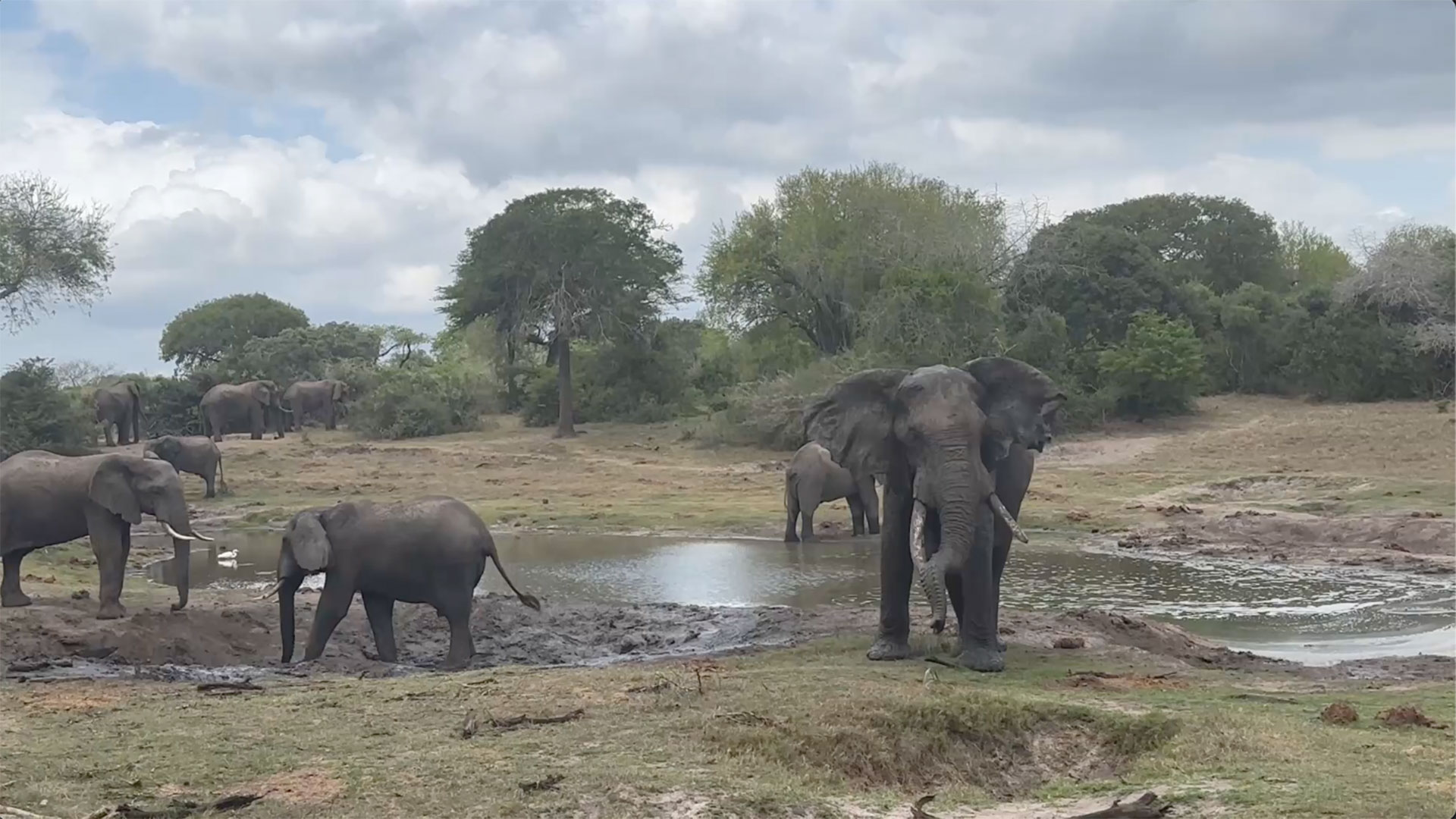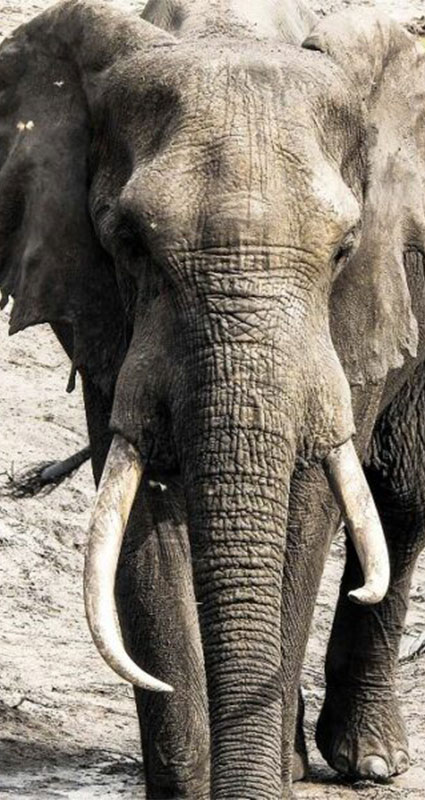SAFARI CAMPS for responsible travellers
The preferred booking platform for lodges & bush camps that offer tangible, measurable benefits for conservation & communities
Tembe Elephant Park in South Africa's KwaZulu-Natal offers intimate encounters with some of the largest elephants in Africa. This Big 5 park is the ancestral home of the Tembe tribe, who own and co-manage the park and lodge.
The 30,000-hectare (300 km2) park was declared by the Tembe Tribal Authority in 1983 to protect elephants that used to migrate between Maputaland and southern Mozambique. The attractive landscape comprises open and closed woodland, sand forest, grassland and swamps.
Home to some of Africa's biggest tuskers
Information about Tembe
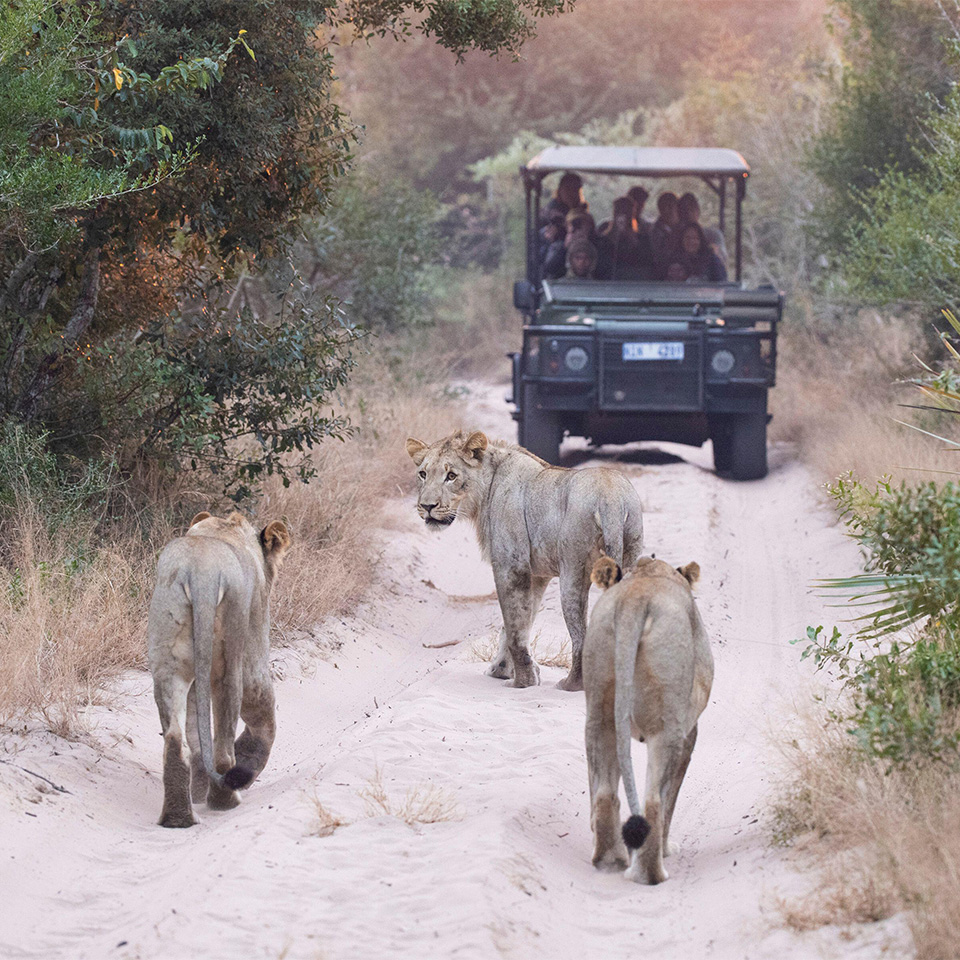
Tembe wildlife
Tembe protects an elephant population that once ranged freely into neighbouring Mozambique and is famed for producing massive tuskers. Indeed, it was home to three of the largest tuskers in southern Africa: Isilo, Induna and Makobona. This legendary trio have since died of natural causes, but there are still plenty of impressive bulls with gigantic tusks.
Tembe is also a Big Five reserve, although the dense vegetation makes the sightings of buffalo, lion, leopard and rhino (black and white) less consistent. Other species include giraffe, zebra, nyala, bushbuck, common reedbuck, suni, grey duiker, impala, kudu, steenbuck, waterbuck, and wildebeest.
Tembe is a rewarding reserve for bird watchers, with more than 340 species recorded, such as African broadbill, pink-throated twinspot, lemon-breasted canary, grey waxbill, eastern nicator, and Rudd’s apalis.
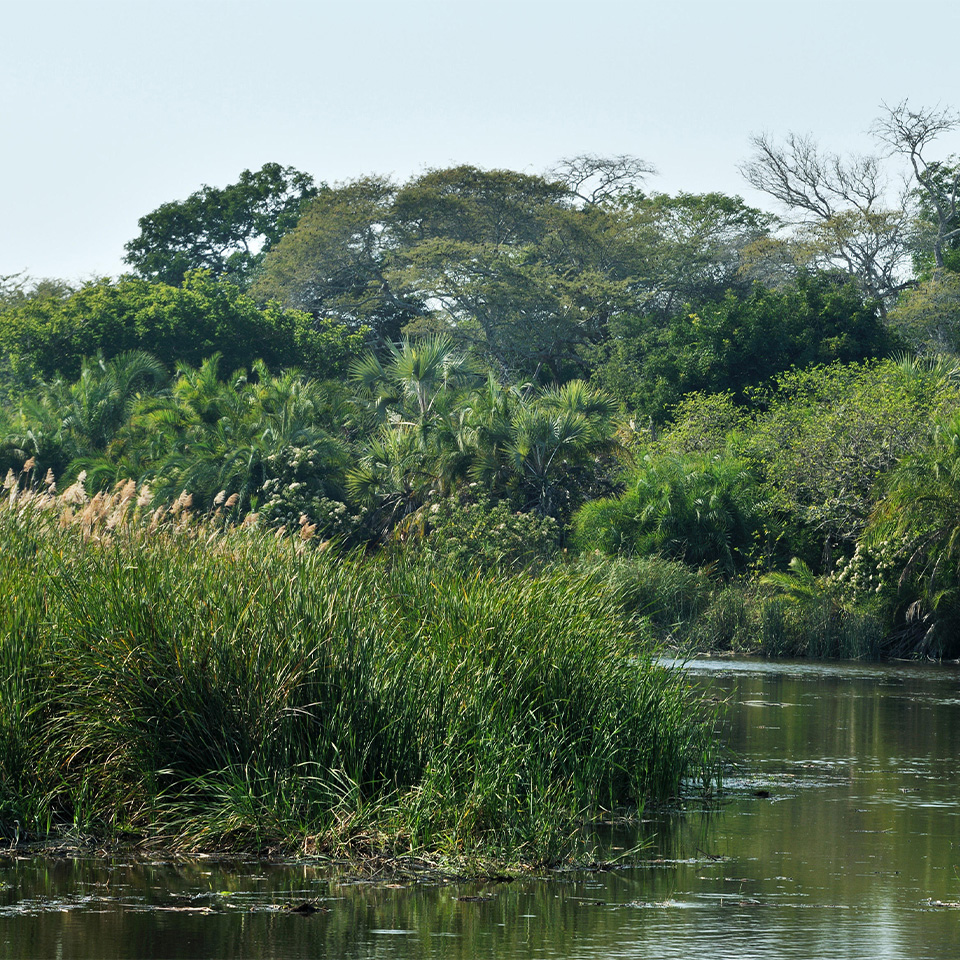
Tembe seasons & landscapes
Open all year round.
The dry season (May–October) has excellent wildlife viewing due to sparse vegetation and wildlife congregating near water sources.
The wet season (November–April) has lush greenery and abundant birdlife, though wildlife spotting can be more challenging due to thick vegetation and wildlife that is spread out.
The attractive landscape comprises open and closed woodland, sand forest, thornveld, grassland, seasonal floodplains and swamps.
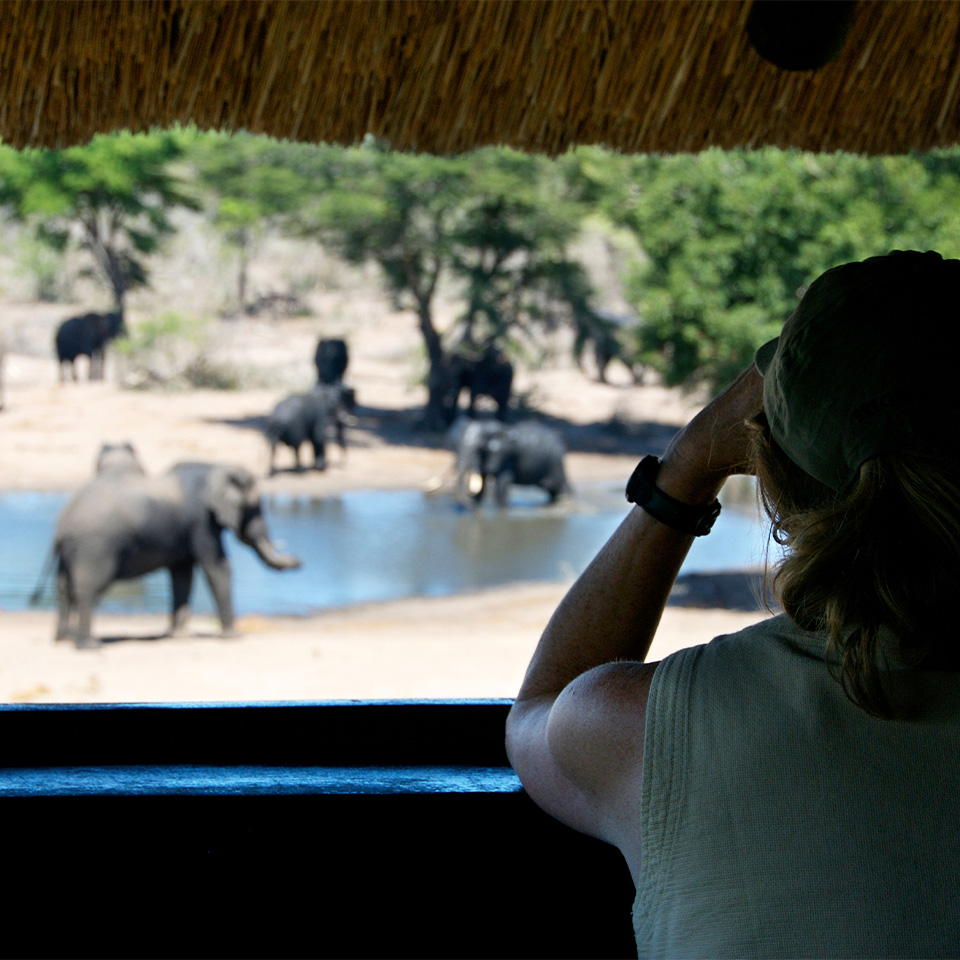
What to do in Tembe
Tembe Elephant Park offers the following activities:
1 - morning, afternoon and nighttime game drives with a spotlight.
2 - visit the Mahlasela hide to see herds of elephants and other wildlife.
3 - bird watching within the lodge area.
4 - traditional singing and dancing at the lodge
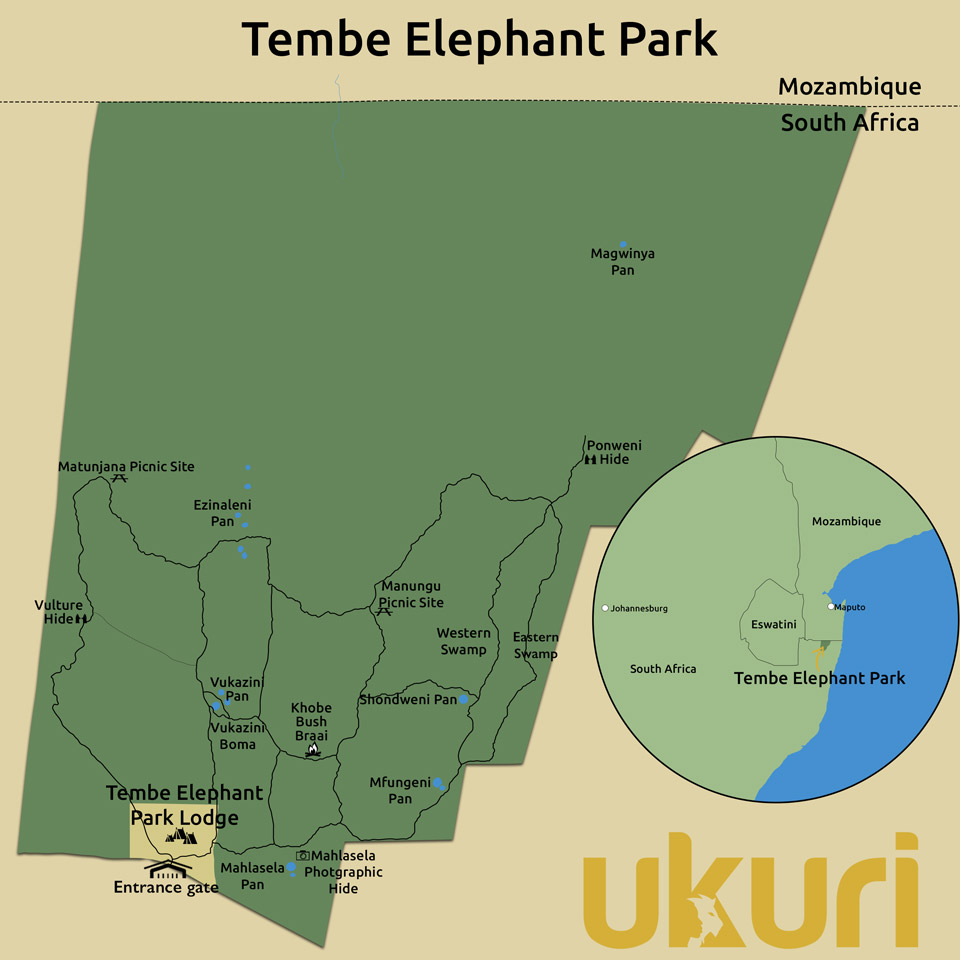
How to get to Tembe
By road
Tembe Elephant Park is easily accessible via good tar roads from several cities, as follows: Durban: about 400km / 5 hours, Richard's Bay: about 240km / 3.5 hours, Hluhluwe–iMfolozi Park: about 180km / 2.5 hours, Nelspruit (Mbombela): about 520km / 7 hours, Maputo (Mozambique): about 170km / 2.5 hours
The only part of the journey requiring a vehicle with 4x4 capabilities is the sandy tracks inside the park, including the short drive from the park entrance gate to Tembe Elephant Park Lodge. The lodge will arrange a pickup from the gate, and vehicles can be safely left at the park reception inside the park gate.
By air
Charter companies offer flights that land on an airstrip inside the park or the nearby Manguzi airstrip, depending on weather conditions.

Health essentials
Malaria area: Yes
Tembe is a medium to high-risk malaria area. The biggest threat is during the rainy season (November to April), but appropriate precautions are advised throughout the year. Cover your arms, legs and feet from dusk to dawn and use mosquito repellent. Please consult your travel doctor about malaria prophylaxis.
Yellow fever area: No
South Africa is not a yellow fever area. Vaccination is required for travellers arriving from countries with a risk for yellow fever virus transmission. Please consult your travel doctor before travelling for relevant updates.
Tsetse flies: Yes
Tsetse flies are found in Tembe. Wear light-coloured clothes and make use of insect repellents to avoid being stung.
✔️ Vested communities ✔️ Responsible & sustainable
Local communities have ownership of land that generates direct tourism revenue
Your safari to Tembe will help local people
Our partner lodge, Tembe Elephant Park Lodge:
is on community-owned land – resulting in direct revenue going to the community via land and lodge ownership.
stimulates the local economy by creating jobs and economic opportunities such as curio sales and village activities.
employs and upskills local people for the tourism industry.
Your safari to Tembe will help conservation
Park gate fees and profits from Tembe Elephant Park Lodge contribute to the protection of Tembe Elephant Park, one of the last areas that hosts elephants and other wildlife in this sensitive, biodiverse transfrontier corridor between South Africa and Mozambique.
